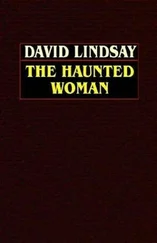There was no time to stop the presses before the main development of green vapor had overwhelmed every one. It must have folded about them, tumbled them to the earth, masked and stilled them. My imagination is always curiously stirred by the thought of that, because I suppose it is the first picture I succeeded in making for myself of what had happened in the towns. It has never quite lost its strangeness for me that when the Change came, machinery went on working. I don’t precisely know why that should have seemed so strange to me, but it did, and still to a certain extent does. One is so accustomed, I suppose, to regard machinery as an extension of human personality that the extent of its autonomy the Change displayed came as a shock to me. The electric lights, for example, hazy green-haloed nebulas, must have gone on burning at least for a time; amidst the thickening darkness the huge presses must have roared on, printing, folding, throwing aside copy after copy of that fabricated battle report with its quarter column of scare headlines, and all the place must have still quivered and throbbed with the familiar roar of the engines. And this though no men ruled there at all any more! Here and there beneath that thickening fog the crumpled or outstretched forms of men lay still.
A wonderful thing that must have seemed, had any man had by chance the power of resistance to the vapor, and could he have walked amidst it.
And soon the machines must have exhausted their feed of ink and paper, and thumped and banged and rattled emptily amidst the general quiet. Then I suppose the furnaces failed for want of stoking, the steam pressure fell in the pistons, the machinery slackened, the lights burnt dim, and came and went with the ebb of energy from the power-station. Who can tell precisely the sequence of these things now?
And then, you know, amidst the weakening and terminating noises of men, the green vapor cleared and vanished, in an hour indeed it had gone, and it may be a breeze stirred and blew and went about the earth.
The noises of life were all dying away, but some there were that abated nothing, that sounded triumphantly amidst the universal ebb. To a heedless world the church towers tolled out two and then three. Clocks ticked and chimed everywhere about the earth to deafened ears… .
And then came the first flush of morning, the first rustlings of the revival. Perhaps in that office the filaments of the lamps were still glowing, the machinery was still pulsing weakly, when the crumpled, booted heaps of cloth became men again and began to stir and stare. The chapel of the printers was, no doubt, shocked to find itself asleep. Amidst that dazzling dawn the New Paper woke to wonder, stood up and blinked at its amazing self… .
The clocks of the city churches, one pursuing another, struck four. The staffs, crumpled and disheveled, but with a strange refreshment in their veins, stood about the damaged machinery, marveling and questioning; the editor read his overnight headlines with incredulous laughter. There was much involuntary laughter that morning. Outside, the mail men patted the necks and rubbed the knees of their awakening horses… .
Then, you know, slowly and with much conversation and doubt, they set about to produce the paper.
Imagine those bemused, perplexed people, carried on by the inertia of their old occupations and doing their best with an enterprise that had suddenly become altogether extraordinary and irrational. They worked amidst questionings, and yet light-heartedly. At every stage there must have been interruptions for discussion. The paper only got down to Menton five days late.
Then let me give you a vivid little impression I received of a certain prosaic person, a grocer, named Wiggins, and how he passed through the Change. I heard this man’s story in the postoffice at Menton, when, in the afternoon of the First Day, I bethought me to telegraph to my mother. The place was also a grocer’s shop, and I found him and the proprietor talking as I went in. They were trade competitors, and Wiggins had just come across the street to break the hostile silence of a score of years. The sparkle of the Change was in their eyes, their slightly flushed cheeks, their more elastic gestures, spoke of new physical influences that had invaded their beings.
“It did us no good, all our hatred,” Mr. Wiggins said to me, explaining the emotion of their encounter; “it did our customers no good. I’ve come to tell him that. You bear that in mind, young man, if ever you come to have a shop of your own. It was a sort of stupid bitterness possessed us, and I can’t make out we didn’t see it before in that light. Not so much downright wickedness it wasn’t as stupidity. A stupid jealousy! Think of it! — two human beings within a stone’s throw, who have not spoken for twenty years, hardening our hearts against each other!”
“I can’t think how we came to such a state, Mr. Wiggins,” said the other, packing tea into pound packets out of mere habit as he spoke. “It was wicked pride and obstinacy. We KNEW it was foolish all the time.”
I stood affixing the adhesive stamp to my telegram.
“Only the other morning,” he went on to me, “I was cutting French eggs. Selling at a loss to do it. He’d marked down with a great staring ticket to ninepence a dozen — I saw it as I went past. Here’s my answer!” He indicated a ticket. “‘Eightpence a dozen — same as sold elsewhere for ninepence.’ A whole penny down, bang off! Just a touch above cost — if that — and even then — — — ” He leant over the counter to say impressively, “NOT THE SAME EGGS!”
“Now, what people in their senses would do things like that?” said
Mr. Wiggins.
I sent my telegram — the proprietor dispatched it for me, and while he did so I fell exchanging experiences with Mr. Wiggins. He knew no more than I did then the nature of the change that had come over things. He had been alarmed by the green flashes, he said, so much so that after watching for a time from behind his bedroom window blind, he had got up and hastily dressed and made his family get up also, so that they might be ready for the end. He made them put on their Sunday clothes. They all went out into the garden together, their minds divided between admiration at the gloriousness of the spectacle and a great and growing awe. They were Dissenters, and very religious people out of business hours, and it seemed to them in those last magnificent moments that, after all, science must be wrong and the fanatics right. With the green vapors came conviction, and they prepared to meet their God… .
This man, you must understand, was a common-looking man, in his shirtsleeves and with an apron about his paunch, and he told his story in an Anglian accent that sounded mean and clipped to my Staffordshire ears; he told his story without a thought of pride, and as it were incidentally, and yet he gave me a vision of something heroic.
These people did not run hither and thither as many people did. These four simple, common people stood beyond their back door in their garden pathway between the gooseberry bushes, with the terrors of their God and His Judgments closing in upon them, swiftly and wonderfully — and there they began to sing. There they stood, father and mother and two daughters, chanting out stoutly, but no doubt a little flatly after the manner of their kind —
“In Zion’s Hope abiding,
My soul in Triumph sings — -”
until one by one they fell, and lay still.
The postmaster had heard them in the gathering darkness, “In Zion’s Hope abiding.” …
It was the most extraordinary thing in the world to hear this flushed and happy-eyed man telling that story of his recent death. It did not seem at all possible to have happened in the last twelve hours. It was minute and remote, these people who went singing through the darkling to their God. It was like a scene shown to me, very small and very distinctly painted, in a locket.
Читать дальше











